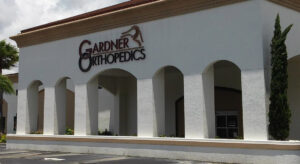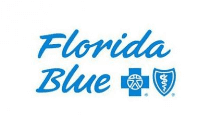By Gardner Orthopedics | Fort Myers, FL
You might think broken bones are just a matter of bad luck — a slip, a fall, a misstep. But in many cases, fractures are the result of underlying bone weakness, not just the accident itself. And two key players in bone health often get overlooked: calcium and vitamin D.
At Gardner Orthopedics, we treat fractures every day — but our goal is to prevent them whenever possible. One of the simplest, most powerful tools in prevention? Getting the right levels of calcium and vitamin D at the right time.
Why Bone Density Declines with Age
As we age, our bodies naturally start to lose bone mass. For women, this often accelerates after menopause. For men, the process is slower but still significant.
Florida residents over 50 are especially at risk due to:
-
Reduced sun exposure during the hottest months (vitamin D comes from sunlight)
-
Dietary changes or poor absorption
-
Medications that interfere with calcium or vitamin D metabolism
-
Limited weight-bearing exercise due to joint pain or arthritis
“Bone density isn’t just a number on a scan. It’s the foundation for mobility and independence,” explains Dr. Ron Gardner, board-certified orthopedic surgeon at Gardner Orthopedics. “We want our patients to stay active — and that starts with strengthening from the inside out.”
What Do Calcium and Vitamin D Actually Do?
They work as a team:
-
Calcium is the mineral your body uses to build and maintain bones and teeth.
-
Vitamin D helps your body absorb calcium efficiently from food and supplements. Without enough vitamin D, you could be consuming plenty of calcium but not using it effectively.
Low levels of either one can lead to osteopenia (mild bone loss) or osteoporosis (significant bone loss) — both of which drastically increase the risk of fractures, especially in the hip, wrist, and spine.
Symptoms of Deficiency
Often, there are no symptoms until a fracture occurs. That’s why screening and prevention are so important.
When symptoms do appear, they may include:
-
Bone pain or tenderness
-
Muscle weakness or cramps
-
Fatigue or low energy
-
Slowed healing after injury or surgery
How We Evaluate Bone Health at Gardner Orthopedics
Through our Platinum Physicals and orthopedic consultations, we assess:
-
Bone density via DEXA scans when appropriate
-
Vitamin D blood levels
-
Calcium intake and absorption (especially in patients with digestive issues or on certain medications)
-
Lifestyle, diet, and sun exposure
We then create a personalized bone health strategy, which may include nutritional counseling, supplementation, IV therapy, and targeted physical activity.
Why Fort Myers Patients Need to Be Proactive
While the Florida sun is a source of vitamin D, it’s not a guarantee — especially when sunscreen is applied (as it should be) or outdoor time is limited due to heat or mobility concerns. Many of our patients are surprised to learn they’re deficient, even with an active lifestyle.
A 2019 CDC study found that nearly one in four adults over 60 in the U.S. have insufficient vitamin D levels, putting them at greater risk of fractures.
Supporting Bone Health with Medical IV Therapy
For patients with absorption issues or those needing faster support, Activation Medical IVs at Gardner Orthopedics can include:
-
Calcium gluconate or chloride for direct replenishment
-
Vitamin D3 or supportive cofactors via tailored regimens
-
Magnesium – vital for calcium regulation and bone metabolism
-
B-complex vitamins for metabolic support
“IV nutrient therapy can be a game-changer for patients with digestive absorption issues or multiple deficiencies,” says Dr. Gardner.
Real Case Example
A Gardner Ortho Patient, a 62-year-old Fort Myers resident with a history of wrist fractures, came in for a Platinum Physical. Her lab work revealed low vitamin D and borderline-low calcium. After three months of IV therapy, oral supplementation, and strength-focused PT, her follow-up scan showed improved bone density — and she felt stronger in daily activities.
What You Can Do Today
Bone health starts now — not after your first fracture. Here’s what we recommend:
-
Get your levels checked annually.
-
Include weight-bearing exercise in your weekly routine.
-
Consider IV therapy if you’re recovering from injury or showing signs of deficiency.
-
Ask your doctor if medications may be affecting your bone density.
📞 Schedule your Platinum Physical or IV consultation with Gardner Orthopedics today and take a proactive step toward lifelong mobility.
About Gardner Orthopedics
Gardner Orthopedics in Fort Myers, Florida, is your go-to destination for orthopedic excellence and wellness services. Led by Dr. Ron Gardner, our team offers advanced care in orthopedic surgery, pain management, foot and ankle care, regenerative therapies, IV nutrient infusions, and in-depth health assessments through Platinum Physicals — all in a supportive, patient-first environment.
📍 3033 Winkler Ave. Ste. 100, Fort Myers, FL 33916
📞 Call: 1-239-277-7070
🌐 Visit: www.gardnerorthopedics.com
Local SEO Keyword Summary:
This article focuses on keywords such as calcium and vitamin D for bone health Fort Myers, osteoporosis prevention Florida, orthopedic bone strength tips, IV therapy for bone density Southwest Florida, Platinum Physical bone screening, and Gardner Orthopedics wellness services.














